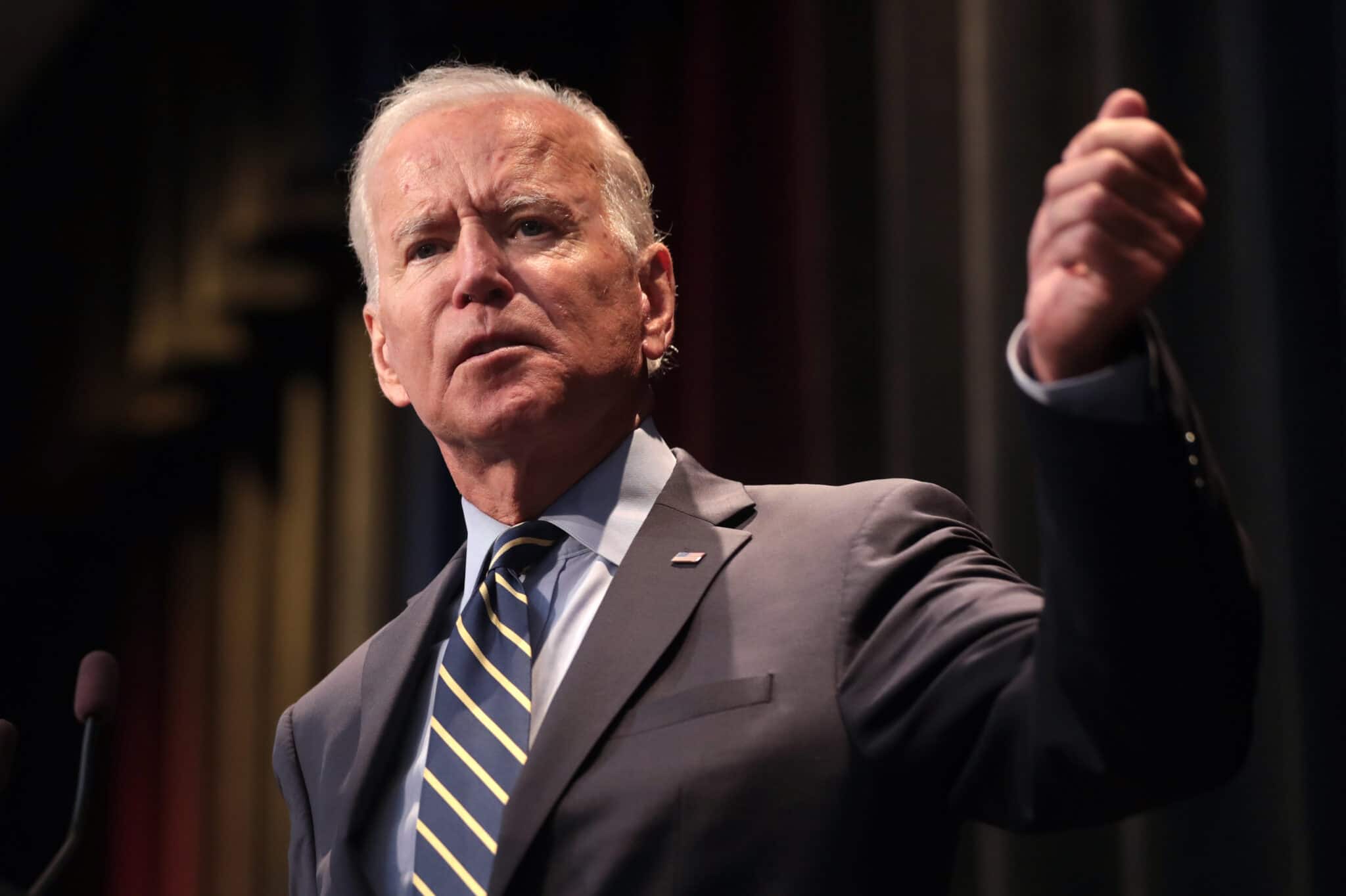
Jason Vazquez is a staff attorney at the International Brotherhood of Teamsters. He graduated from Harvard Law School in 2023. His writing on this blog reflects his personal views and should not be attributed to the IBT.
In today’s news and commentary, Biden renominates his pick for head of the Wage and Hour Division; Walmart raises wages; Sanders plans Starbucks hearings; organizing continues in the gaming industry; and Harvard Law School launches the Center for Labor and a Just Economy.
The White House announced yesterday that President Biden has renominated Jessica Looman, a former labor lawyer and union official, to lead the DOL’s Wage and Hour Division, which is the agency charged with enforcing the FLSA and other federal employment laws. Biden originally nominated Looman for the role in July, after Congress rejected his first pick, David Weil. Her initial nomination was also blocked by Senate Republicans and returned to the White House earlier this month. Looman presently serves as WHD’s principal deputy administrator, so she will continue to lead the agency while awaiting Senate confirmation.
Walmart, the largest private employer in the United States, pledged yesterday that it will “begin investing in higher wages for associates.” The retailer is reportedly set to raise its hourly minimum wage from $12 to $14 next month, which, according to the firm, will bring its average U.S. wage to more than $17.50 per hour. While a pay hike for working people always represents a positive development, More Perfect Union points out that the company’s CEO-to-worker pay ratio will remain astronomical, at 1029-to-1.
As Kevin detailed over the weekend, Senator Bernie Sanders (I-VT) will soon chair the Senate Committee on Health, Education, Labor and Pensions (HELP). Reports indicate that the incoming chairman plans to deploy the Committee’s influence and authority in ways calculated to promote worker power. As Kevin explained, Sanders intends to revisit the issue of paid sick leave for rail workers, the major point of contention that nearly precipitated a nationwide railway strike last year. Moreover, Bloomberg Law reports that Sanders has plans to initiate hearings into Starbucks’ aggressive, and often unlawful, response to the unionization efforts at its stores. It is, the senator has explained, “wrong that a major corporation like Starbucks, according to the NLRB, has broken the law numerous times in trying to prevent workers from forming unions.”
Yesterday, the New York Times’ morning newsletter explored the burgeoning movement to organize the video game industry, an industry which, the Times emphasizes, is now worth more than “music, U.S. book publishing, and North American sports combined” and “employs hundreds of thousands of people in the U.S. alone.” It has, however, “also faced accusations of brutal work conditions, discrimination and harassment,” which have animated many developers to seek collective protection. Indeed, employees have recently formed unions at several Activision Blizzard and Microsoft studios, and labor activists informed the Times that similar efforts are underway at dozens of other locations.
Finally, Harvard Law School opened the Center for Labor and a Just Economy (CLJE) on Tuesday, a research and policy institute aimed at reimagining law in ways that will empower working people, countervail corporate power, and build a more equitable political economy. In view of the newly energized U.S. workforce, catalyzed to a large extent by the restructuring of work associated with the pandemic, CLJE has identified that new policy ideas are necessary to meet this moment. “We are looking to develop—in collaboration with folks from across the labor movement, academia, worker advocacy—new strategies for empowering workers so that the economy and our democracy will be more fair,” explained Sharon Block, the Center’s executive director. “The mission of the center is to reimagine American labor laws to enable working people to rebuild the economy and politics in a more equitable fashion,” said HLS Professor Benjamin Sachs, who serves as CLJE’s faculty co-director.






Daily News & Commentary
Start your day with our roundup of the latest labor developments. See all
July 4
The DOL scraps a Biden-era proposed rule to end subminimum wages for disabled workers; millions will lose access to Medicaid and SNAP due to new proof of work requirements; and states step up in the noncompete policy space.
July 3
California compromises with unions on housing; 11th Circuit rules against transgender teacher; Harvard removes hundreds from grad student union.
July 2
Block, Nanda, and Nayak argue that the NLRA is under attack, harming democracy; the EEOC files a motion to dismiss a lawsuit brought by former EEOC Commissioner Jocelyn Samuels; and SEIU Local 1000 strikes an agreement with the State of California to delay the state's return-to-office executive order for state workers.
July 1
In today’s news and commentary, the Department of Labor proposes to roll back minimum wage and overtime protections for home care workers, a federal judge dismissed a lawsuit by public defenders over a union’s Gaza statements, and Philadelphia’s largest municipal union is on strike for first time in nearly 40 years. On Monday, the U.S. […]
June 30
Antidiscrimination scholars question McDonnell Douglas, George Washington University Hospital bargained in bad faith, and NY regulators defend LPA dispensary law.
June 29
In today’s news and commentary, Trump v. CASA restricts nationwide injunctions, a preliminary injunction continues to stop DOL from shutting down Job Corps, and the minimum wage is set to rise in multiple cities and states. On Friday, the Supreme Court held in Trump v. CASA that universal injunctions “likely exceed the equitable authority that […]